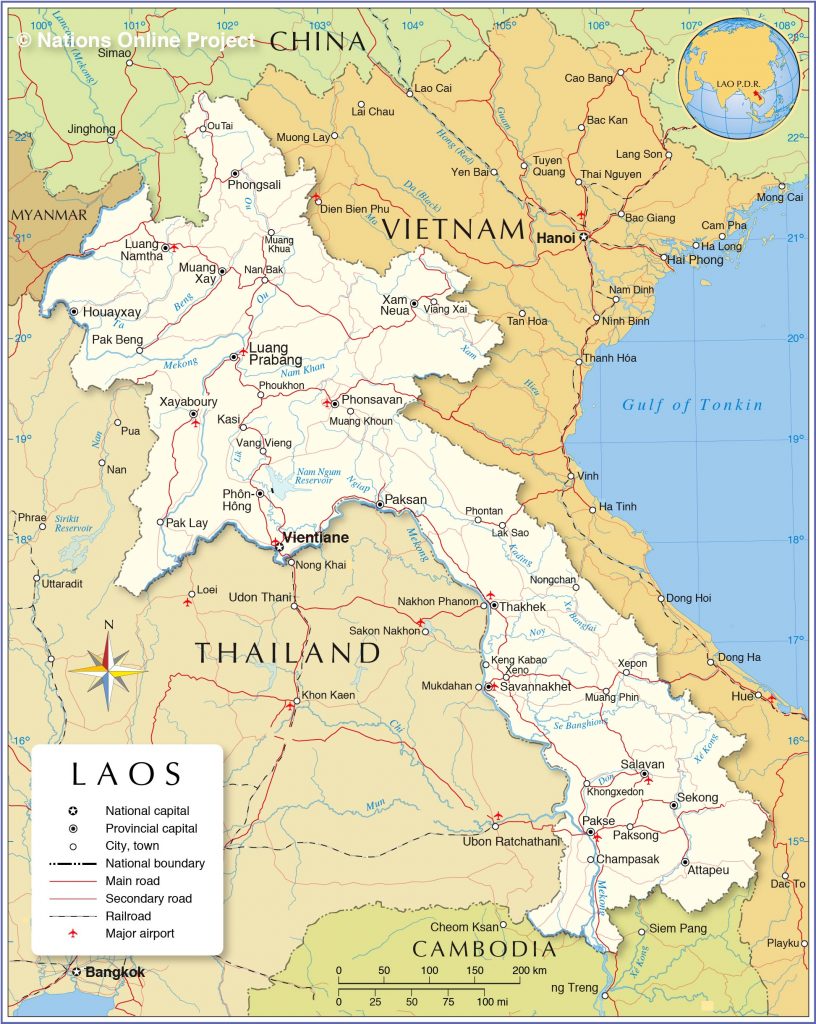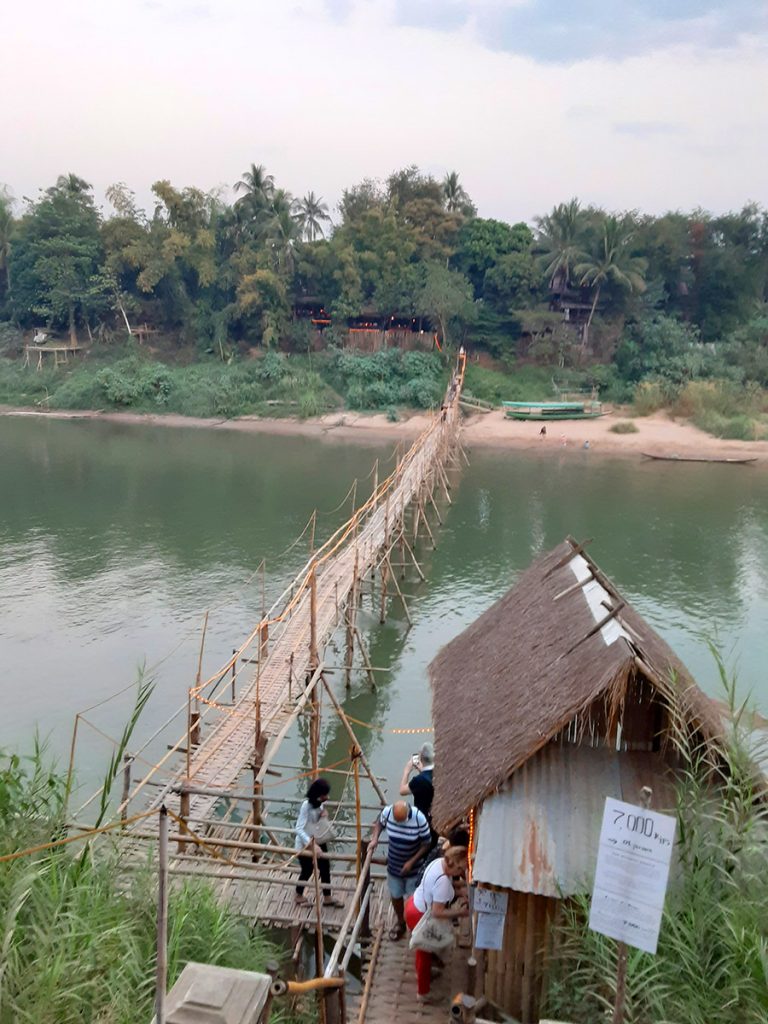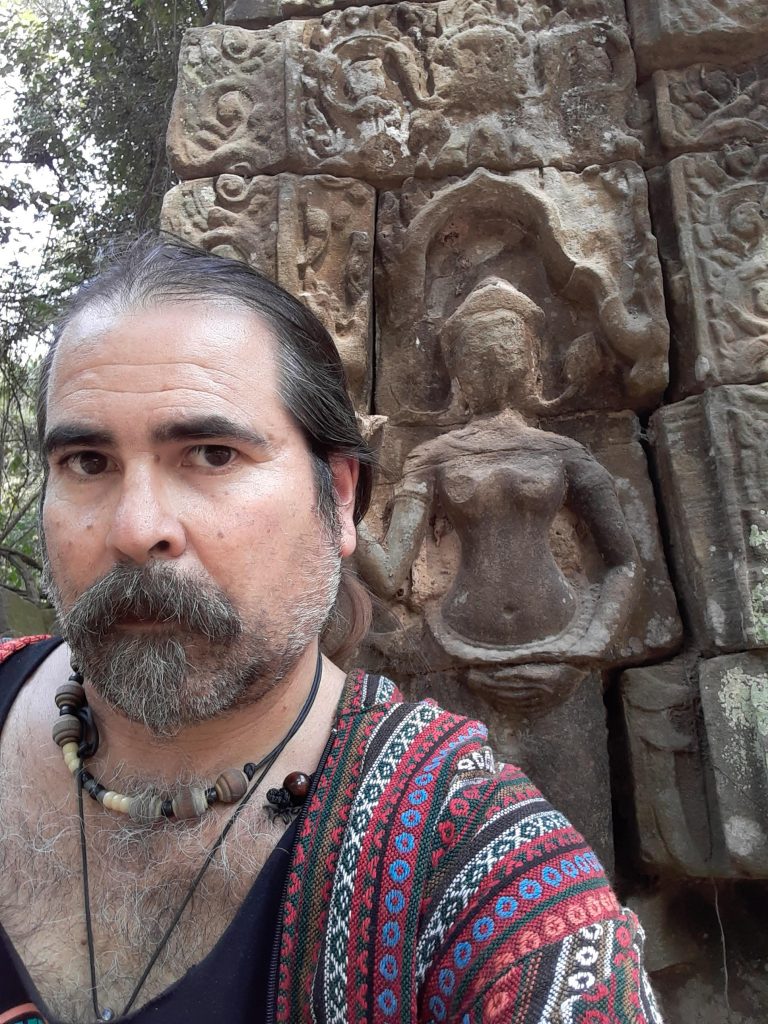
The adrenaline of a traveling Back Packer junkie tends to feed off experiencing counter cultures. Better known as culture shock, it is one of the broad points of soul seeking like one might find going to church to search for the holy enlightenment and answers to life or as a Buddhist Monk meditates for stillness of the mind. For my third travel back to South East Asia this past January and February 2020, I finally had the chance to visit and explore the vast history of Cambodia’s Siem Reap, second biggest city to capitol of Phnom Penh. What allures many visitors worldwide is a highly recommended visit to Ancient City of Angkor Wat which is a jurassic park city of complex temples and ruins recognized by UNESCO as World Heritage site.
Rolling Down the River
Arriving directly from the Mekong River in Laos, I was so excited to visit one of 8 Wonders of the Ancient City and largest Hindu Temples of the world, Angkor Wat, which was the centerpiece of my visit. The Largest religious site in the world, Angkor Wat was built during 12th century and dedicated to the Hindu God Vishnu. Later in 12th century it was recognized as a Hindu-Buddhist Temple and served as the earliest capitol city of Cambodia. Known as the Khmer Empire before the invasion of Thailand, better known in Siamese, ‘Siem Reap’ which translates to “Siam defeat.” This defeat serves as a reminder of centuries old conflict of 1549 when Siamese of Ayutthaya Kingdom, today known as Thailand, invaded Khmer Kingdoms of today’s Cambodia.
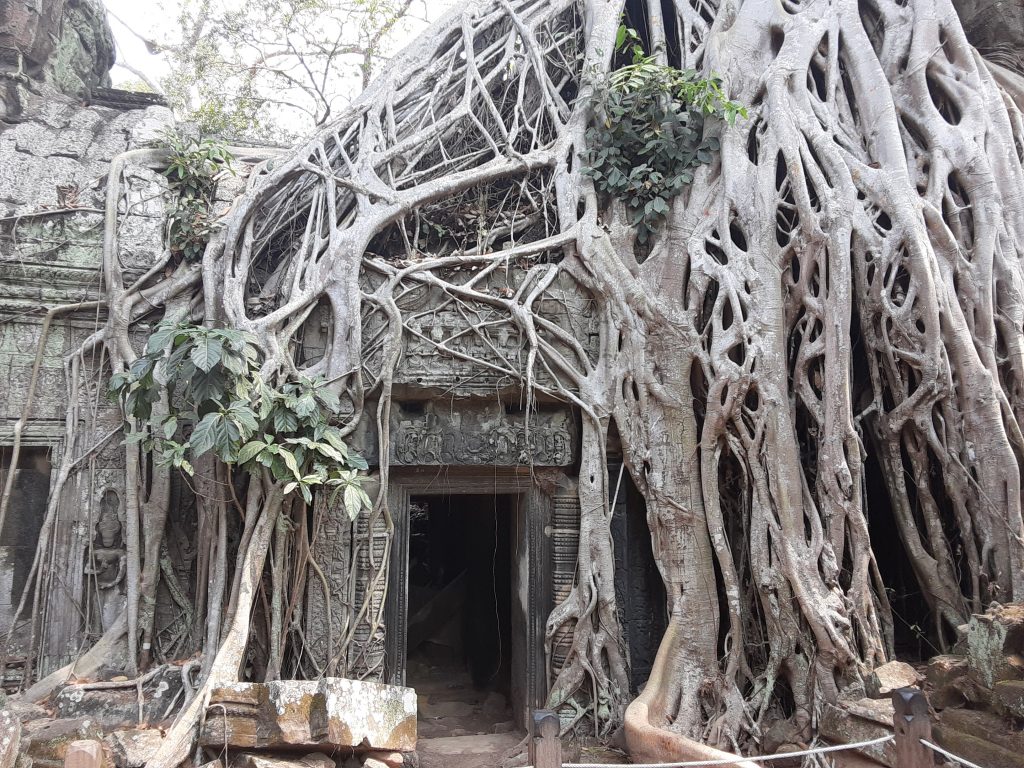
The Khmer Empire during the 16th century’s came under duress with certain interventions by the Siamese including invasions resulting in the Khmer taking control over Angkor Wat, creating political, religious and geological shifts. The Nguyen Dynasty, better known as Vietnam, was also making moves for domination over and around the Mekong River.
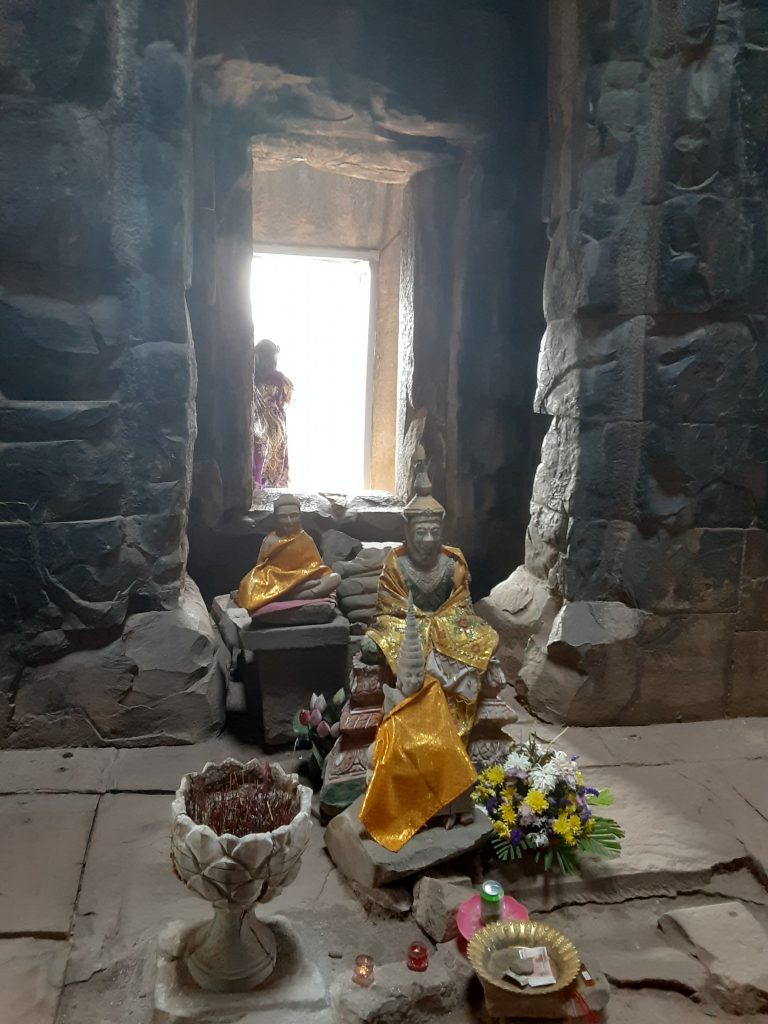
I timed my visit to coincide with the Holy Holiday associated with Hinduism and Buddhism and the Chinese lunar new yea . I try to continuously tries to re imagine or astro travel back to when The Khmer Monarchy was not only in decline from several distinct and gradual political changes but also trying to understand the struggle with human – environmental interactions. People were subject to natural disasters such as flooding and droughts were reported with ecological consequences which just led to more war. People of the area were fighting for dominance and control over the fertile basin of a Mekong River between Thailand Siamese and Nguyen Dynasty of Vietnam for nearly 3 centuries.
On the Mekong
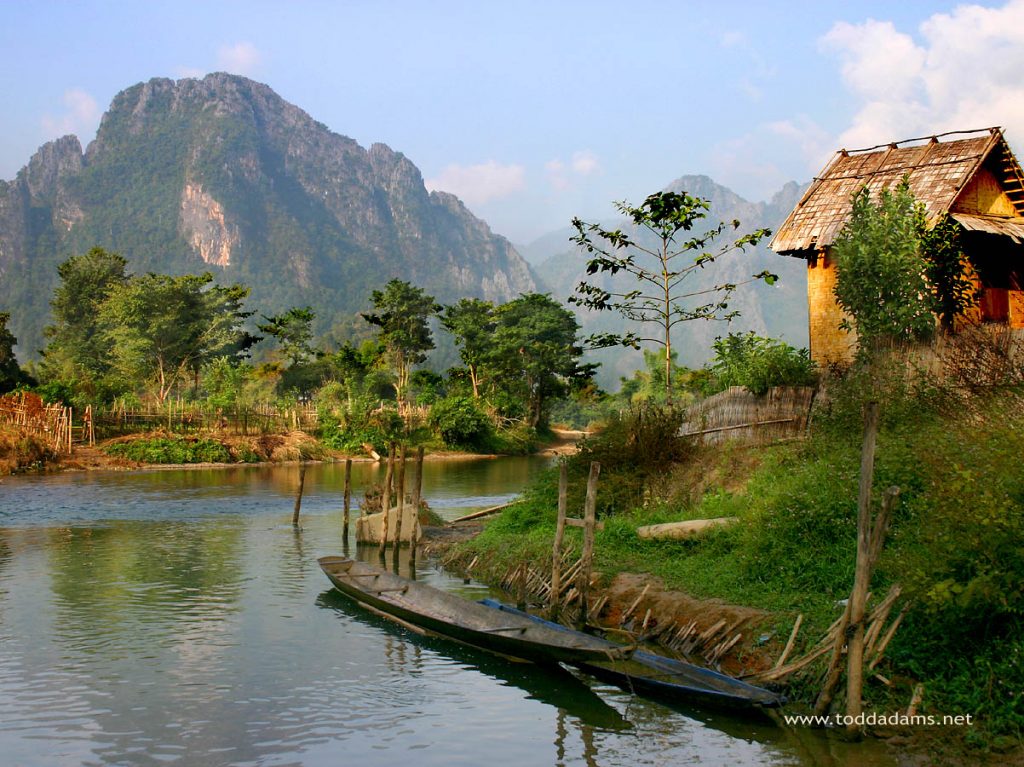
The Mekong River is 12th longest river in the wold and major trading route from western China and South East Asia which leads to access to the Sea of China for maritime trading with Spanish and Portuguese. Inherently, the geographical advancements always met with resistance with different lords and kings within all the provinces of Cambodia. The Khmer Kingdom was so oppressed of their sovereignty as a country, that it wasn’t until nineteenth century French Colonialism helped severe its dominance with Siamese and Nguyen Dynasty per requested by Cambodia’s King.
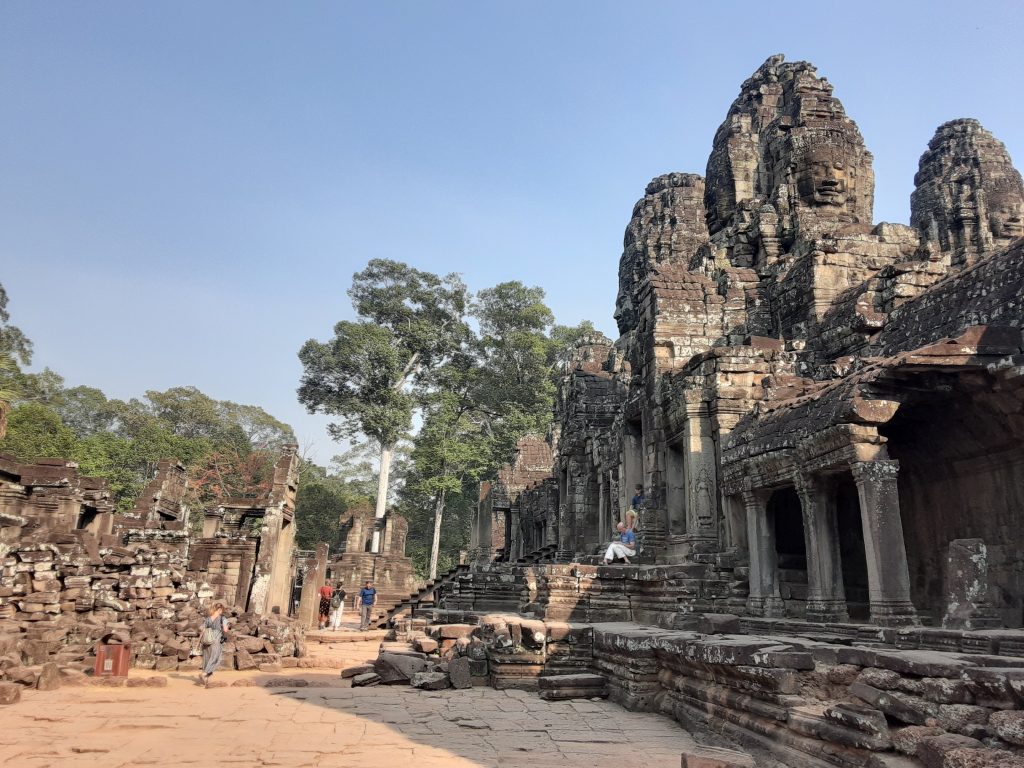
Francophiles
The French Protectorate of Cambodia was recognized in 1863 by the territorial invading countries. The French Indochina was now beginning to assert its colonial control over South East Asian countries such as Laos, Vietnam and a southern enclave of China (Kingdom of Autthaya Siamese) modern day Thailand. Interestingly, Thailand never was totally colonized during the Franco-Siam War which lasted for several generations until 1941, it just ceded territories to avoid being conquered by colonialist France or the Communist insurgency. Small factions of Guerrilla insurgents known as the Communist Party of Thailand were active between 1965-1980 and were responsible for several political assassinations occurring mostly in the North Eastern Kingdom of Thailand bordering with China which had their own Civil War. Cambodia, at that point was a little more sovereign under Cambodia King An Duong under the French rule until their own Civil War in the 19th century.
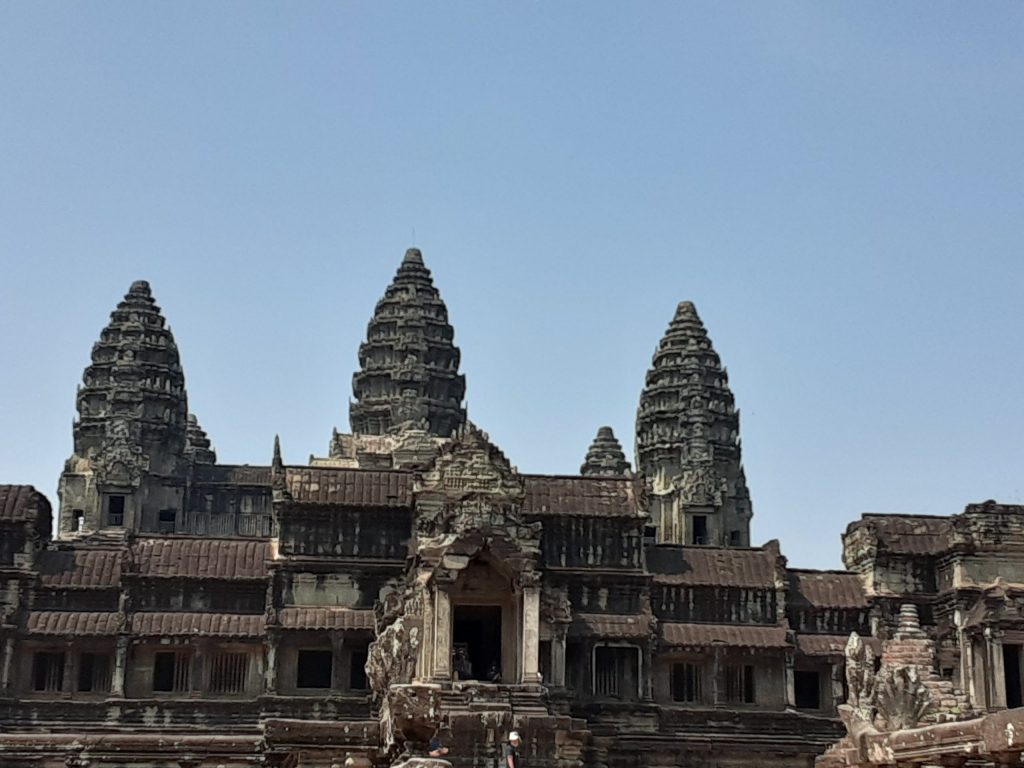
Up Next The Khmer Rouge.
Find out more about Greg and previous articles
Join our Community!

Please help support Independent Media by subscribing below. This is a free subscription which will entitle you to free giveaways, books information, book previews, merchandise giveaways, event news, book signing info and more! Thank you.
Community Publishing is from the community for the Community!
